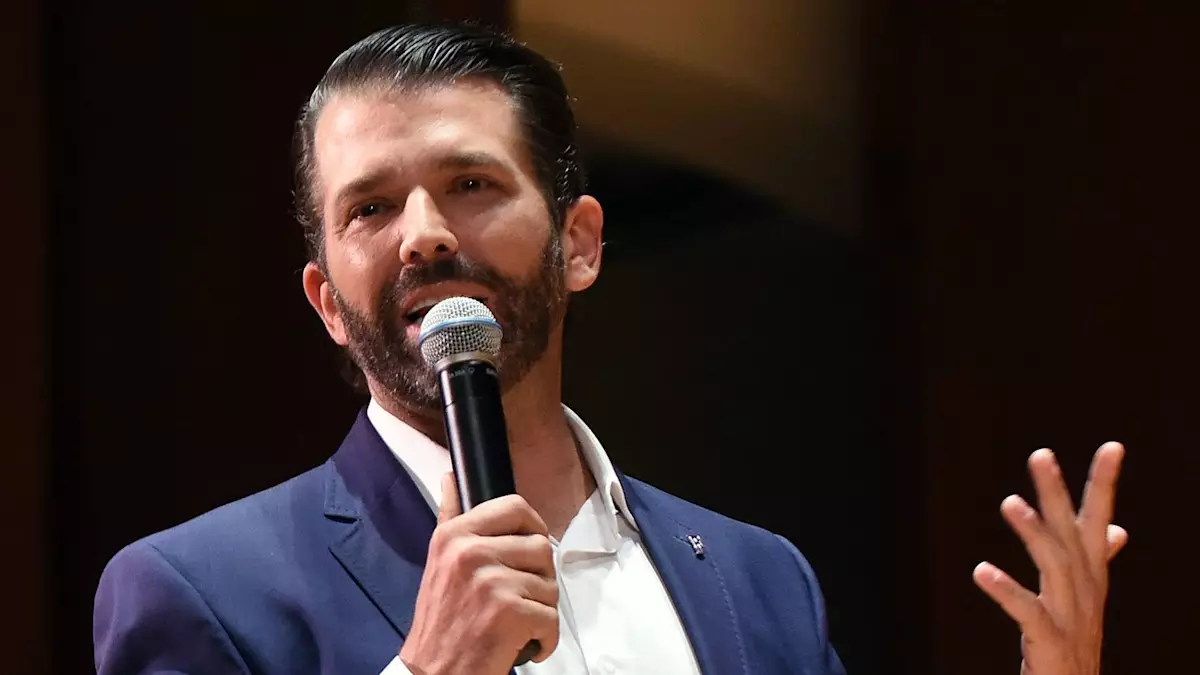In today’s digital landscape, social media has reshaped how we engage in political discussions—often devolving into spectacles of sarcasm, misinformation, and insensitivity. Donald Trump Jr.’s recent comments about President Joe Biden’s cancer diagnosis underscore the troubling trend in which personal tragedies become fodder for political point-scoring. When Biden’s office announced his diagnosis of an aggressive form of prostate cancer, Trump Jr. initially responded with a belligerent tone, insinuating that the diagnosis was somehow orchestrated and dismissing the legitimacy of the Biden family’s circumstances. The severity of the situation was eclipsed by Trump Jr.’s desire to inject cynicism into a moment that demands compassion.
The Dangerous Dance of Sarcasm and Insensitivity
What makes Trump Jr.’s remarks particularly egregious is not merely the content but the tone employed. Often, public figures attempt to shroud their insensitivities in layers of humor or sarcasm, hoping to mask their intentions. His insistence that he was being sarcastic when referring to Dr. Jill Biden, who holds an Ed.D., demonstrates a flawed understanding of the gravity of health issues. By painting Biden’s cancer diagnosis as an elaborate cover-up, Trump Jr. veers into a territory that is not just politically charged but wholly inappropriate. Here lies the challenge: When humor dismisses human suffering, it crosses a moral line.
Public Response: Outrage Versus Acceptance
Reactions to Trump Jr.’s comments were swift and stinging, with many social media users expressing outrage at his “despicable” insensitivity. The commentary illuminated a national conversation about expectations of empathy in political rhetoric. How is it that public figures, especially those buoyed by privilege, can so openly disregard human suffering? Critics of Trump Jr. highlighted the irony of someone who has [allegedly] benefited from a family legacy of affluence questioning another’s credentials. This vein of hypocrisy adds layers of complexity to the ongoing political discourse, underlining that partisanship can dull our collective sense of humanity.
The Impact of Misinformation in Politics
As Trump Jr. doubled down on his remarks, suggesting that “the Dem-Media” was covering up Biden’s health issues, the conversation shifted from the personal to the political in alarming ways. Misinformation thrives in this environment, leading followers to question established truths. The tragedy is not just Biden’s health but the erosion of trust in straightforward communication. When legitimate concerns about a leader’s health spiral into conspiratorial rhetoric, it jeopardizes public discourse and confidence in institutions.
Finding Strength in Vulnerability
In stark contrast to Trump Jr.’s dismissive tone, President Biden took a moment to share his personal struggle with the disease. His message, framed around collective strength and resilience, strikes a poignant chord. By acknowledging the vulnerabilities we all face, Biden connects with the public on a human level, showcasing that, despite the political theater, there are moments in life that demand solidarity and support.
Biden’s heartfelt acknowledgment of the challenges posed by his diagnosis serves as a reminder that, regardless of political allegiance, humanity should prevail in moments of genuine crisis. Mankind often finds strength in shared vulnerabilities, transcending political affiliations and reminding us that empathy is a powerful force.
An Urgent Call for Empathy
The episode involving Trump Jr. is not merely about one individual’s inappropriate response; it is a wake-up call for all of us. In a world so divided along political lines, moments of empathy are essential in restoring some semblance of civility and humanity to discourse. As we navigate through the increasingly charged political landscape, we must adamantly refuse to shun empathy in favor of sarcasm or disdain.
Every individual’s health battle—be it a public figure like Biden or an ordinary citizen—deserves respect and dignity. The challenge for our society is to strive for reframing political discourse, fostering an environment where heartfelt communication can flourishes. In doing so, we are not just elevating our discussions; we are acknowledging our shared humanity, a sentiment desperately needed now more than ever.

